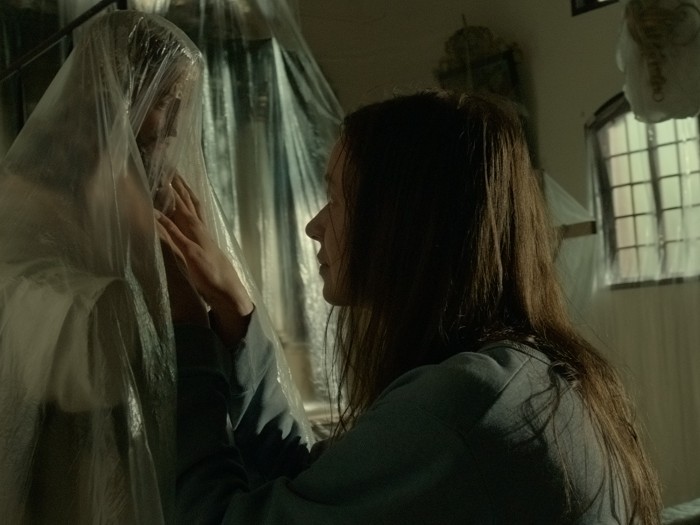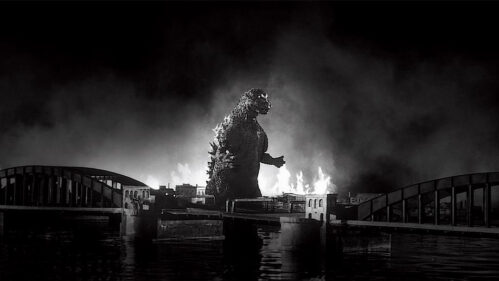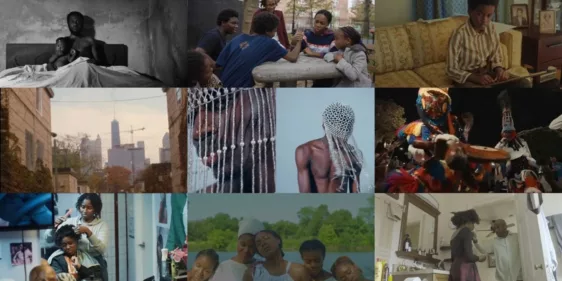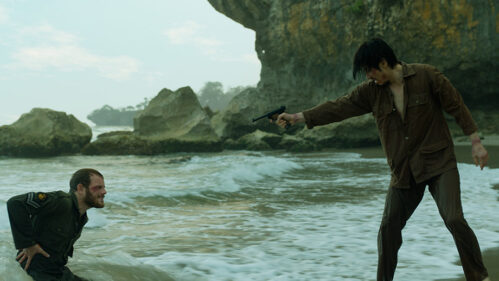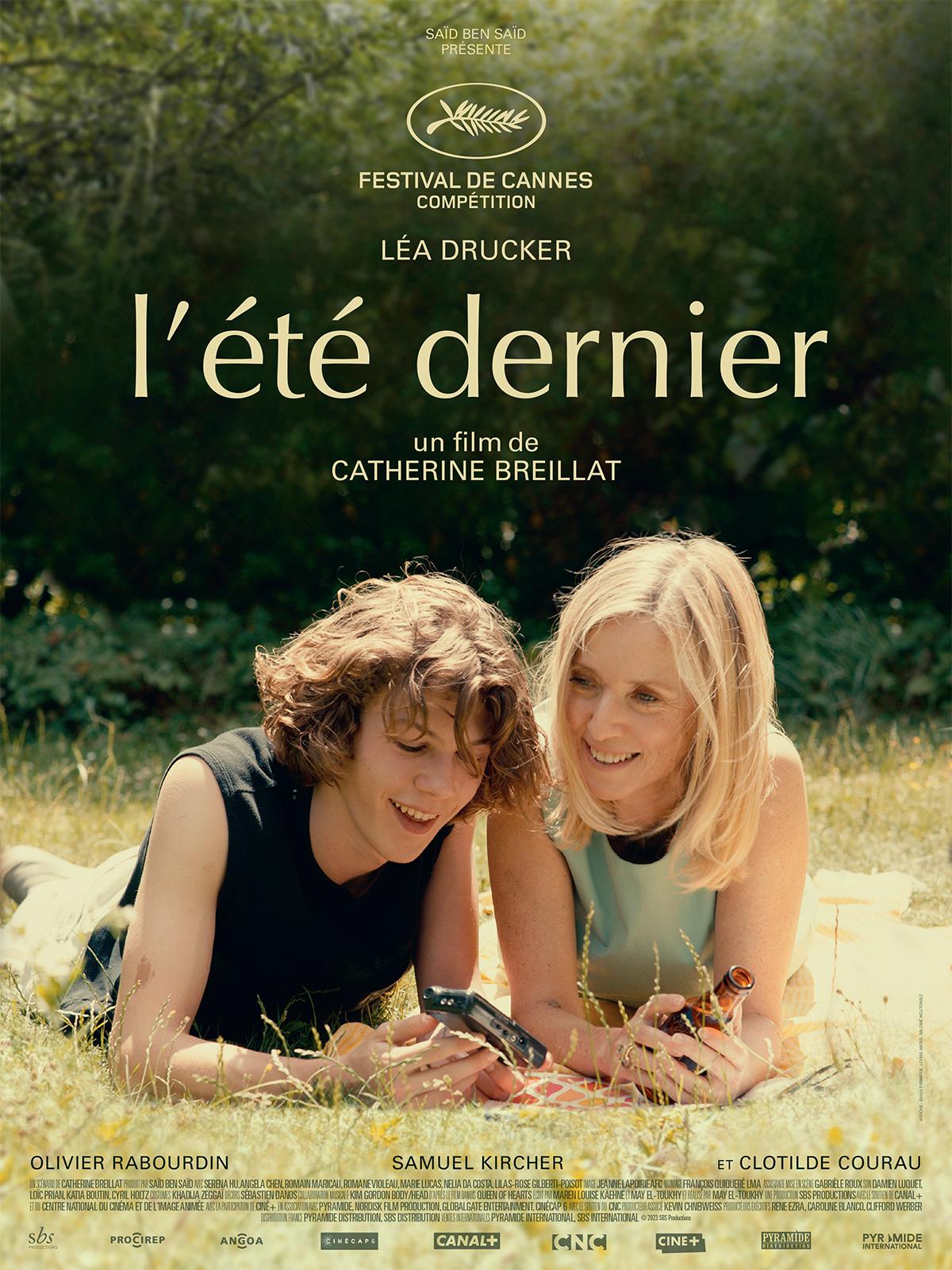To anyone following Polish cinema of the past few years, it is quite apparent that its undeniably fresh tone is (almost exclusively) due to a steadily emerging array of debuting directors: most in their early thirties and offering surprisingly confident voices in their very first features. While Agnieszka Smoczyńska's vampire-mermaid vintage-disco musical "The Lure" may still be the biggest international success in that group (recently canonized by the Criterion Collection and sporting a global fandom as select as it is devoted), it may well be that the upcoming Berlinale Forum premiere of Jagoda Szelc's "Tower. A Bright Day." will raise the new Polish cinema's profile even higher.
Szelc is 34 years old and still not a graduate of the famed Łódź Film School. And yet, her debut feature was not only enthusiastically produced by the school-owned Studio Indeks (originally established by Wojciech Jerzy Has, of "The Saragossa Manuscript" fame), but also landed two key awards at Poland's prime domestic showcase, Gdynia Film Festival (Best Feature Debut, Best Screenplay).
The film itself is a psychological horror of sorts, opening with a "Shining"-like series of overhead shots of a lonely car exiting rigid geometry of urban space and plunging into the unbridled, mountainous beauty of Poland's Lower Silesia region. The main dramatic conflict is established right away, as we meet two sisters—Mula (Anna Krotoska) and Kaja (Małgorzata Szczerbowska)— who may physically resemble one another, but seem to inhabit opposite ends of a spiritual spectrum the movie's chief concern is to fearlessly examine.

When we first see Mula, she is building a makeshift wire fence around a young tree in her country house's yard—a gesture implying strife for control and order in a world escaping categorization. It's only a few days left before Mula's daughter, Nina (Laila Hennessy) will receive her First Communion, which provokes a family get-together that serves as a blissful early-May sojourn for Mula's overworked, lower middle class family. The half-dozen adults and three kids (two of which are played by the actual children of actors playing Mula's brother and sister-in-law, Rafał Kwietniewski and Dorota Łukasiewicz-Kwietniewska) mostly walk freely around nature, dine together and enjoy many a lazy breakfast in a sunny living room—or else pay a short and awkward visit to Mula's immobilized mother (Anna Zubrzycki), residing in an upstairs room. Into all this comes Kaja: silent, ethereal and slightly menacing from her very first scene, in which she stares blankly into the camera as if attuned to sounds no one else is hearing. As the film almost immediately establishes, Kaja is in fact Nina's biological mother, who for the past six years might have been institutionalized and whose strange behavior is an embarrassment for the straight-laced wannabe-bourgeois family. It is through Kaja's disconcerting presence that the family will be tested, and ultimately transformed, in "Tower. A Bright Day."
On face value, the film plays like a Dogma 95-inspired riff on the theme of possible witchcraft and/or paranoia subtly gnawing at a seemingly self-possessed character of Mula. Szelc and her editor Anna Garncarczyk beautifully establish not only the moment-to-moment rhythm of the scenes (heavy on jump-cuts and yet astonishingly fluent), but also the cyclical nature of what basically is carefree vacation time, punctuated by intense dream images that haunt Mula practically every night. Mula's repeating of everyday rituals (the morning check-up on the sleeping kids, fixing breakfast, etc.) acquire a subtly sinister nature as the feeling grows inside her mind that Kaja is dead-set on somehow subverting the family order: be it by performing an actual miracle of healing, or by turning Nina away from Catholicism and pulling her into some pagan-like sensibility Mula intensely fears.

If on the surface the film may suggest some weird cross between Von Trier's "Melancholia," Polański's "Rosemary's Baby," Cassavetes' "A Woman Under the Influence" (not to mention a suspense story shot by an imaginary cousin of Lucretia Martel), you are in fact not too far off. Of all the Polish movies of the last decade, this one most successfully blends realistic, observational technique (astonishingly assured in a first-time director), with a natural feeling for the horror genre that makes Szelc an immediate peer to filmmakers such as Jennifer Kent ("The Babadook"), David Robert Mitchell ("It Follows"), and Julia Ducournau ("Raw"). No small part of the success, it has to be noted, comes from the movie's fantastic ensemble cast of virtual screen unknowns—each of whom fully inhabits their character, with Krotoska and Szczerbowska both riveting in their mirroring shadow dance of alternating bouts of frailty, fear, tenderness and serenity.
The film's steady buildup is so delicate and so laced with Szelc's almost subconsciously distributed sense of humor (some of it courtesy of Rafał Kwietniewski in a goofy-uncle mode, but most carried firmly by Szelc's ear for slightly obscene familial banter), the finale comes as a true shock—as stirring as it is poetic. The less is said about it, the better, but the sheer power of the last act is such that it leaves both the screen reality and the film's viewer utterly transformed. Suffice to say that the slow deterioration of the familial and parochial institutions we witnessed before comes to full fruition in the final minutes, just as Przemysław Brynkiewicz's camerawork turns from its vérité nervousness to stately, dreamlike grace.
Shocking and unexpected as the final reel may be, the entire movie has an eerie, gentle, lived-in vibe to it, which may make you feel as though you are being cradled in the arms of a gifted, soft-spoken hypnotist. There is no doubt in my mind that "Tower. A Bright Day." announces the arrival of a major directing talent: one that keenly registers the mundane in order to discover its secret, spiritual underpinning. There's a fierce, pagan-like energy to this movie, and a fantastic precision to this young woman's writing/directing talent. May her arrival on the world film scene be as disruptive—and as transformative—as the arrival of Kaja is in her film's world itself.
"Tower. A Bright Day.", written and directed by Jagoda Szelc, will play as part of the Forum section at 68th Berlinale (15-25 February)

